The National Library of Medicine recently published an abstract on how xylitol affects Streptococcus mutans.
The study was done by researchers from Finland working for Danisco Labs, a branch of DuPont Nutrition and Health, who also make and profit from xylitol, so there is some obvious financial interest. You can read the abstract here if you want. This study is important because these bacteria, we’ll call them SM for short, are the major causes of tooth decay.
These bacteria first get into our mouths from our parents, mostly our mothers, who taste our food–when we are young and just getting teeth–so that it doesn’t burn us. It is easy for these bacteria to hold on to our teeth and they eat the same foods we eat so they can multiply. When they multiply enough they start building homes that protect them from outside threats. On our teeth we call this plaque; it’s what the dentist scrapes of when he cleans our teeth. Technically it’s known as biofilm.
In this article, we’ll refer to Streptococcus mutans as the “bacteria” for easier understanding.
What we’re discussing is how the sugar alternative, xylitol, affects this bacterial layer that tends to cover our teeth. The US National Library of Medicine published an article discussing how “dental biofilms are useful in finding ways to support a healthy microbial balance in the oral cavity.” They were able to study the effects on four different strains of bacteria using a dental simulator.
They used a simulator that provided a continuous-flow of artificial saliva (AS) in an oral cavity environment. The simulator also maintained a constant temperature during testing. They maintained an unaltered sample of AS, then tested a sample with 1% sucrose (sugar), and then 2% xylitol.
In the simulated environment, the results showed that adding 1% sucrose to the AS increased the colonization of bacteria. However, adding 2% of xylitol to the sample decreased the bacterial colonization. Increasing the xylitol to anywhere between 2-5% showed a reduction of bacteria, even in the presence of sucrose.
The Studies Conclusion:
In conclusion, sucrose promoted a biofilm but the xylitol reduced the bacterial colonization and generation. The results help support the notion that xylitol affects the ability of certain bacteria from adhering to Hydroxyapatite surfaces. This is an essential ingredient of normal bones and teeth. Consequently, other clinical studies have also shown that xylitol consumption decreases caries incidences and reduces the amount of plaque.
The recommended dose of xylitol per day is 5 grams to reap these oral health benefits. You can easily accomplish this by starting and ending your day with a xylitol toothpaste and mouthwash. You can also chew xylitol-based gum throughout the day. Furthermore, xylitol comes in all forms, not just in dental care. You can get your daily doses of xylitol a sweeter way in candy form or a powdered sweetener for cooking and baking. Xylitol is safe for adults and children and is a natural, healthy alternative to sucrose.
Related Articles
How Sugar Rots Your Teeth vs A Sugar Alternative
Xylitol sweetener looks incredibly similar to sugar, but it won’t rot your teeth! Unfortunately, most people’s favorite sugars are the ones that tend to rot your teeth. So how and why does sugar rot your teeth and how does a sugar alternative...
Natural Sugar Substitutes for Diabetics and Prediabetics
With so many options available, what’s the best natural sugar substitutes for diabetes? Unfortunately, the number of people with diabetes continues to rise. In fact, according to the United States Centers for Disease Control and Prevention, or...
A GRANDMOTHER’S CURE FOR EAR INFECTIONS: My View of Xlear – From the Beginning
Grandmother: Jerry Bozeman Grandfather: Lon Jones D.O. Infant: Heather Once upon a time there was a lovely, loving, but frustrated grandmother who was threatening to kidnap her 6 month old granddaughter to save her from her doctors. They were continuing the...
Does Xylitol Make a Good Sweetener?
Health conscious people recognize that sugar and artificial sweeteners present serious problems for your body. Over the years, artificial sweeteners have been linked to everything from neurological disorders to cancer, and more. While the results of these studies are...
Great Ways to Use Xylitol as a Sugar Substitute
Xylitol sugar substitute options are almost endless. If you’ve never used xylitol, then you are in for a treat, literally! The different ways that you can use xylitol is nothing short of amazing. Let’s take a look at why this natural sweetener deserves a place in any...
The Benefits of Xylitol
Many people have still not heard of or used xylitol, but the benefits of xylitol are simply undeniable. What is it that makes xylitol so useful? Xylitol is an all-natural sweetener that has been studied for decades. The conclusion of studies...

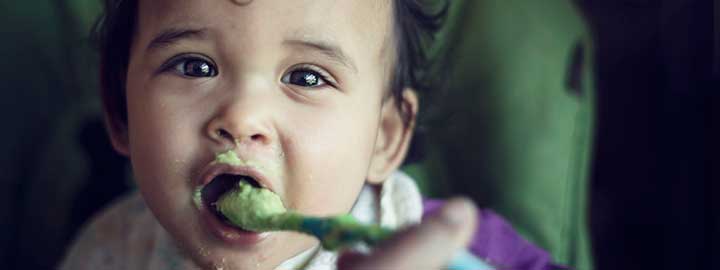
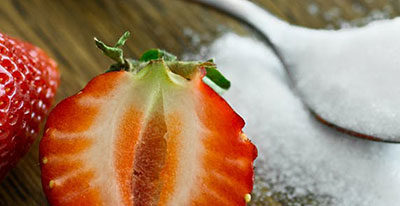
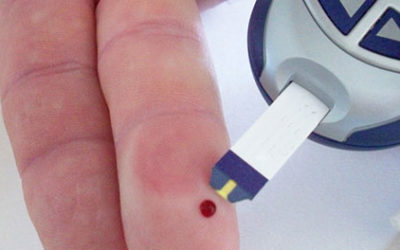
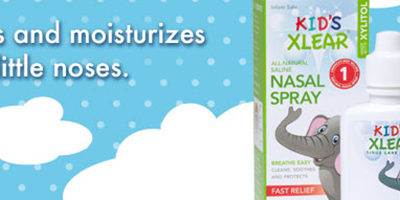

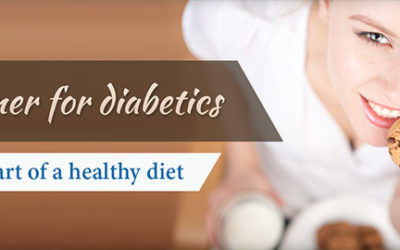




This may help children with PANDAS!
We would really like to know if it would. Early research with xylitol showed that it did not affect Group A strep–the bacteria thought to cause PANDAS. On the other hand there are lots of people who see a benefit with oral xylitol and strep throat, and doctor in Wales is using and promoting it in his practice for that purpose. Certainly regular exposure to xylitol both orally and nasally helps keep those areas clean of most pathogens.
I was thinking the same thing. I recently read about the benefits of adding xylitol to a nasal flush, used especially during illness to treat and shorten the duration. The last illness we had go through the family we tried it. My personal results were inconclusive. But I believe in trying anything and everything before heading to the doctor. I wonder if a regular nasal fish could potentially aid PANDAS children in preventing flare-ups.
Your comment raises two issues: nasal flushes and PANDAS. Neti-pots have a long history and do help. But so did vaginal douching which is no longer recommended. It’s no longer recommended because the resident bacteria in the vagina protect the woman from infections from other organisms. We have learned from this since that GI and dental bacteria in their respective biofilms do the same thing–and it is likely that those in the nose serve the same purpose. Washing them out disturbs the biofilm and eliminates the defense. Far better is tweaking that environment in ways that help, like the nasal xylitol you mention, but in a spray, not a douche.
PANDAS is caused by Streptococcus viridans and this bacteria has not been seen to be effected by xylitol. At the same time oral xylitol does have a stabilizing effect on bacteria in the mouth and a pediatrician at the University of Cardiff uses it to prevent infections from this bacteria. It certainly won’t hurt.
where are the cites ??? can’t trust enough without citations…
Thanks for your interest in xylitol and your skepticism. Several of the people contributing to this site are not medically or research oriented, and few of the readers are, so we tend to overlook citations and rely on common sense. Common sense says we are not able to win a war with bacteria; it says that we need to honor and support the defenses we have, because those defenses help us survive. Change your paradigm first and then the citations will be more meaningful. Pubmed has 22 citations coupling xylitol and Strep. mutans. Several of the more significant ones are left out however, like the one showing Strep. pneumoniae (a far more dangerous pathogen) to have the same genetic inability to manage xylitol as does its cousin S. mutans. That research was done by Luc Trahan and his 7 articles on the subject are here, and the specific one is here.
Is this sweetener Chemical based? Is it safe for all children?
Thanks for your interest in xylitol. We are not sure how to answer your question since all of nature is made up of chemicals. Your slant seems to be distrustful of ‘Chemicals’ and we assume you are worried about the many that have come from large profitable companies that have subsequently been shown to be harmful to humans. I can reassure you that xylitol is not in this mix since the human body itself makes about 10 grams of it every day. Xylitol is made from xylose, a sugar that is in the plant world what glucose is in the animal world. It is natural and non-toxic in any way except that too much of it acts as a laxative, which is both good and bad.
I have been trying to steer clear from sugar and started using xylitol. For some reason my teeth get very sensitive when I chew the gums. Any suggestion?
Thanks!
We would think the gum sensation to be related more to the flavors than to the xylitol. Have you tried a variety?
My Lyme dr. Prescribes this for me to break up the bioflm so the bacteria become exposed to the antibiotics. I’m slowly getting better. And when I take this within an hour I feel the effects. I start to feel really lousy as the bacteria breaks down into my bloodstream and releases toxins. Then the antibiotics can get to it the next day. But just bbreaking open the biofilm and starts to cause havoc on my body.
We are glad you are improving and that you have a doctor wise enough to read the science behind the way we should practice and to play with it. We would suggest a few ideas to continue in this: dental benefits seem associated with frequency of exposure to xylitol as much or more than the amount of the dose. We wonder if your dose is enough to cause some GI problems that normally happen within an hour or so of eating it and would recommend doing something that would increase your exposure time–like putting it in your drinking water.
Ha! Xylitol is toxic to bacteria – even gut bacteria. Killing your gut bacteria means more inflammation and bad bacteria to ruin your health. It’s toxic to cats and dogs, and there haven’t been any studies regarding safety in children and pregnancy. Oh, “but everything is a chemical!” Yeah, but not all chemicals are easily broken down and assimilated by the body. What can’t gets stored (hello gall-stones!), secreted (hi ance), or excreted (nice to see you kidney stones!). There are no longer term studies of the use of Xylitol nor upper limits of toxicity- and believe me, they want to put thus crap in EVERYTHING!
Sorry Dr. Diana but the facts show you wrong. First of all it is not toxic to bacteria. There are many plant based bacteria–the kind that most of our good probiotics are made up of–that can eat xylitol and thrive. They are nice to have around since they don’t infect us like they do plants. There are many animal based bacteria–which includes the kind that infect and try to recycle us–that lack the digestive machinery for five carbon sugars like xylitol. But even when they eat it, it doesn’t kill them. They just get indigestion and sick until they learn not to eat it. In the case of S. mutans they also learn at this time not to make the acid that eats through our teeth.
It is toxic to dogs, but not to cats.
Xylitol is made by the body. And we can measure it because people with ‘essential pentosurea’ have xylitol in their urine. Xylose, a closely related pentose is found on the cell surfaces of all the cells in the body.
No long term studies? Look at the Turku sugar studies where people used xylitol for sugar for two years. Their only side effect was no cavities.
Give us a break and do your science research before you open you mouth.